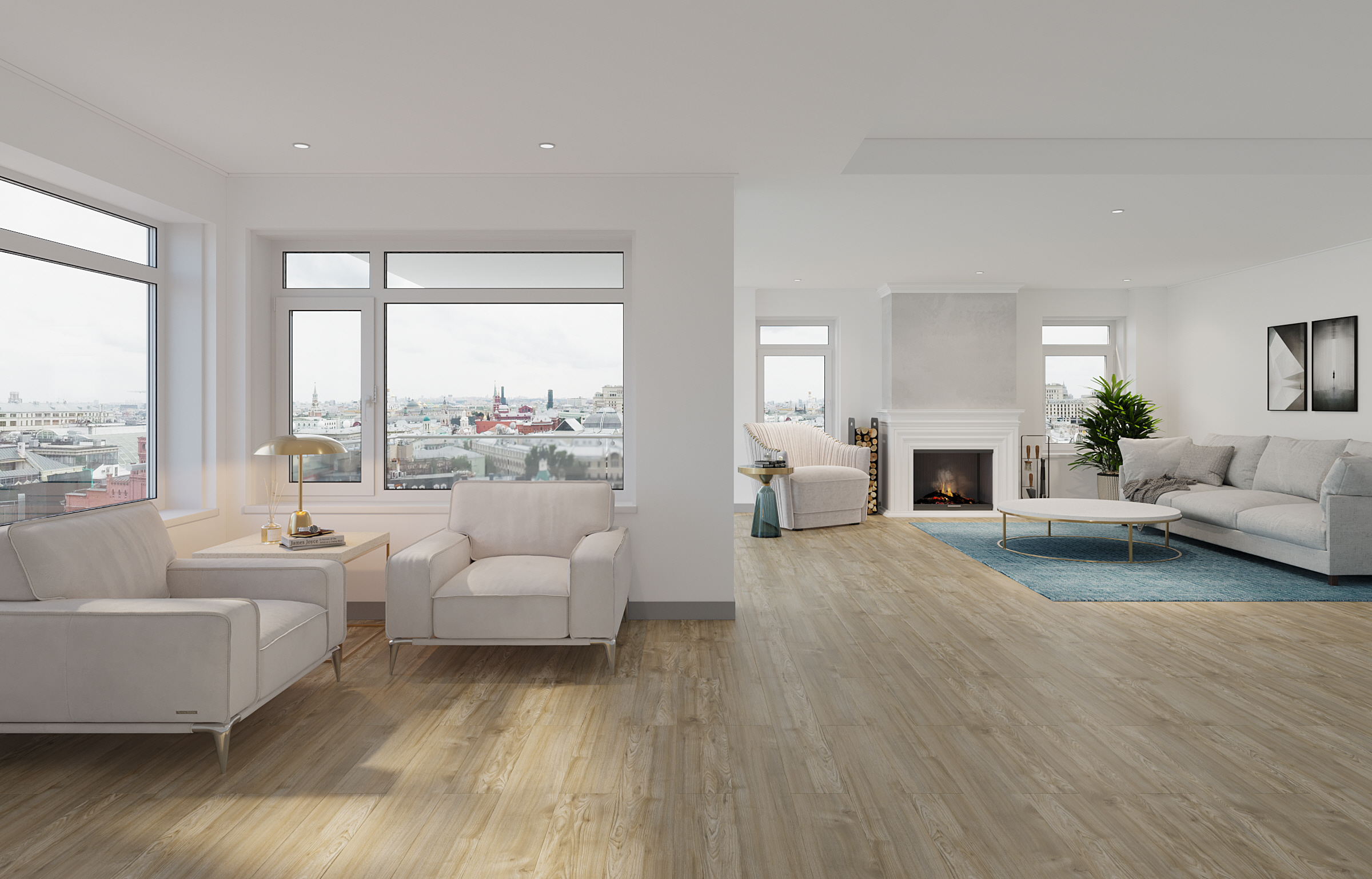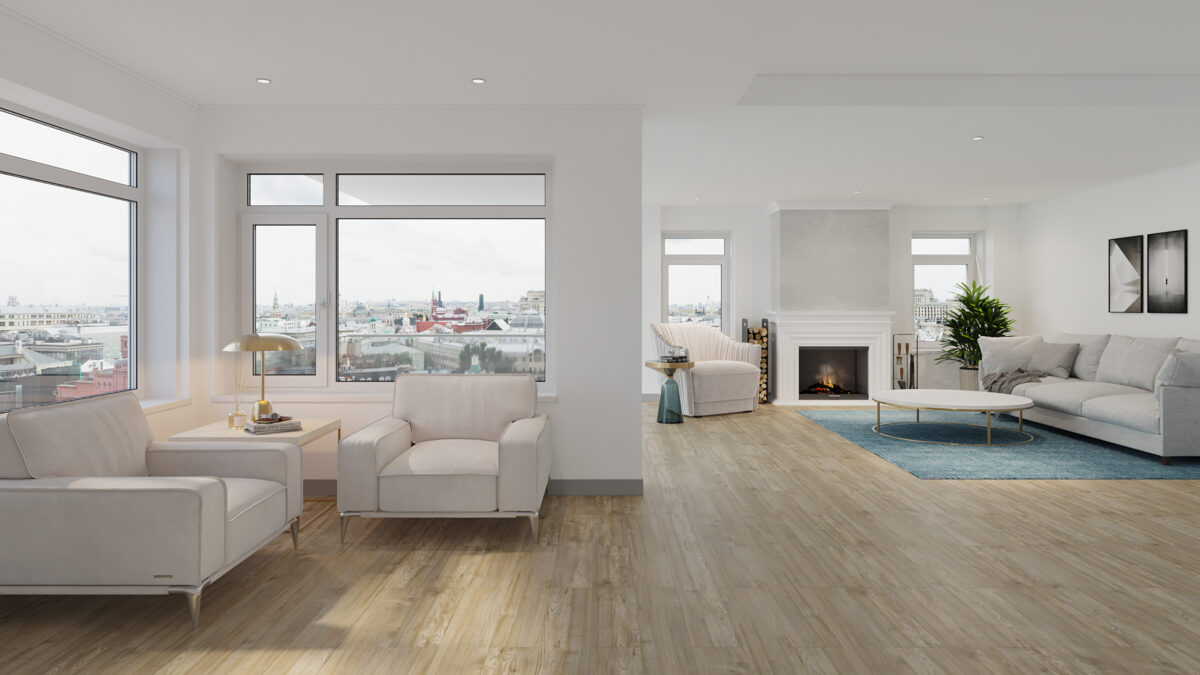
What Is Vinyl Wood Flooring?
Vinyl wood flooring is a synthetic material made of layers of plastic pressed together to make vinyl planks. With a photorealistic top layer, vinyl wood flooring looks and feels just like wood while keeping the longevity of synthetic material.
Vinyl wood flooring may look like hardwood, but there are a few key differences. Here’s a breakdown of the luxury vinyl flooring pros and cons:
How Long Does Vinyl Wood Flooring Last?
Vinyl wood flooring is very durable. It can last, on average, 10-20 years but can last longer if it’s properly cared for or in a low-traffic area.
Pros of Vinyl Wood Flooring
Durability of Vinyl Plank Flooring
Luxury vinyl wood plank flooring (LVP wood flooring) is extremely durable. It can hold up to moisture exposure and heavy foot traffic. In terms of durability, it can be compared to linoleum flooring, but it’s constructed differently.
Easy Maintenance and Cleaning
All it takes is a vacuum or a wet mop to keep your vinyl flooring clean!
Versatility in Design
Vinyl flooring designs can look like a variety of surfaces. Whether you’re looking for warm-toned wood panels or Moss Tree inspired textures, you can find the perfect vinyl hardwood look that matches your space.
Cost-Effective Flooring Options
Vinyl flooring generally has a lower upfront cost than real wood flooring, and its durability allows it to be a worthwhile and cost-effective long-term investment.
Cons of Vinyl Wood Flooring
Wear and Tear
Vinyl flooring is durable, but it’s not indestructible. It can show signs of wear and tear over time, especially if it’s of lower quality. High-quality products like luxury vinyl wood plank flooring will show less wear and tear.
Scratches and Dents
Dirt and debris can scratch the surface of your vinyl flooring, which is why regular sweeping or vacuuming is an important part of vinyl flooring maintenance.
Water Damage
Vinyl plank flooring is waterproof, so you don’t have to worry about water damage. However, standing water on vinyl flooring can lead to warping over time, so keeping your vinyl flooring clean and dry is a key element for preserving longevity.
Resistance to Fading
Vinyl plank flooring is designed to resist fading, but if installed in areas with full or direct sunlight, it may begin to fade over time.
How to Install Vinyl Wood Flooring
There are a few different strategies to install vinyl flooring, depending on the type of flooring you select. The most common method is Glue Down. The vinyl flooring is attached to the subfloor with either hard-set or pressure-sensitive adhesive.
For the hard-set method, you place the adhesive on the subfloor, then add the vinyl wood planks on top. For the pressure-sensitive method, the adhesive is already on the vinyl planks, and all you have to do is press them into place to activate it.
Vinyl Plank Flooring vs. Hardwood Flooring
When you’re considering luxury vinyl plank flooring vs. hardwood, there are a few key differences to consider: intended use and pricing.
Hardwood has classic character, but it’s not as durable and moisture-resistant as vinyl wood. In addition, vinyl wood flooring costs are generally lower than hardwood costs.
Key Factors to Consider Before Choosing Vinyl Flooring
As a homeowner or designer, you have to consider the usage of your space and the vinyl flooring pros and cons before you commit to vinyl flooring. Is your space a high-humidity environment? Are you going to have a lot of foot traffic over time? Do you want flooring that’s easy to clean with what you have available?
If the answer to any of these questions is ‘yes,’ vinyl flooring might be the right choice for you. If you’re ready to look at the options, you can check out all of our vinyl flooring options here.

